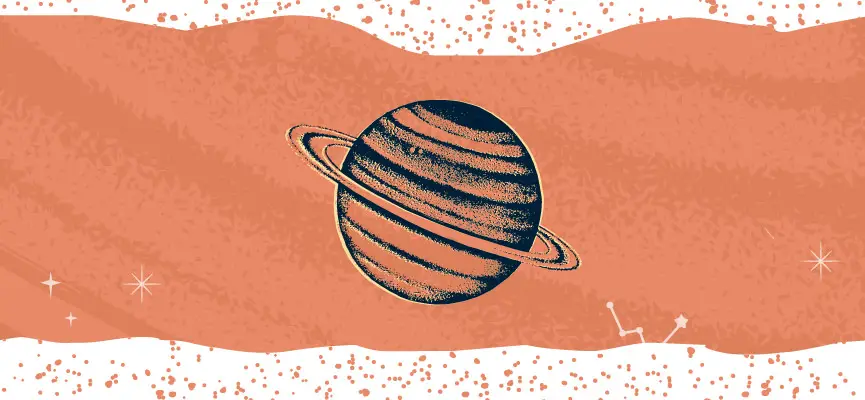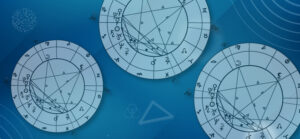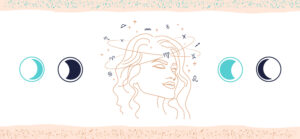In Astrology, slow Saturn reflects the disciplined, patient, and cautious attitude needed to succeed. As the most remote planet known to ancient Astronomy, Saturn is the last of the "personal" planets. Saturn in traditional astrology is known as the "Great Evil". It is an enemy of the Sun and Moon, the planets that symbolize the light of life.

"The glyph of Saturn represents the authority and the cross of matter. Together, they symbolize the responsibilities and challenges imposed by mortality on Humanity."
Index
Astral Characterization
- Primordial Quality - Cold and Dry
- Element - Earth
- Temperament - Melancholic (reflective and focused personality; deals better with facts than ideas)
- Rules/ Dignity - Capricorn, Aquarius
- Day of the Week - Saturday
- Colors - Black, green, grey, orange
- Detriment/ Conflict - Cancer
- Exaltation - Libra
- Fall - Aries
- Virtue - Prudence
- Addiction - Dissimulation
- Number - VIII
- Past Life Obstacles - Inability to perform tasks, respect authority, refusal to take risks, refusal to evolve
- Associations - Structure, crystallization, locks, responsibility, everything dark, wool, heavy fabrics, world and agricultural tools, cold
- Keywords - Limitation, control, consolidation, structure, borders , conservation, strength, life and death, wisdom, karma, shadow, darkness, discouragement, self-condemnation, time, fear, denial, responsibility, mentor
Brief Astronomy Facts About Saturn
Next to Jupiter, Saturn is the second-largest planet in our solar system. Despite its size, Saturn is not very dense; it would float in the water of a planetary-sized bathtub. It is surrounded by a system of rings that stretch for thousands of kilometers but are only 9 meters thick. It has more than 62 moons. It is the farthest planet from the Sun observed since antiquity.
Saturn takes about 29.46 Earth years to traverse the Zodiac circuit, being the slowest of the ancient planets. In medieval Europe, Saturn was seen as a solitary planet, slow, cold, melancholic, and as the regulator of time. Saturn was at the limit of our vision for the universe. The slow movement made him personified as an old man in many ancient cultures.
About Saturn in Astrology
TIME. AGING. BORDERS. LIMITS. RESPONSIBILITY.
As the ruler of time, Saturn is known as "Father Time". Generates beginnings and endings, processes that involve defining boundaries and limits. Governs responsibility, time and law of cause/effect. It influences the way we manage, control and maintain stability in our lives. Related to old age, the cycle of life and death falls under its sway.
Saturn also has a regulator role. Enforces borders. It tells us when to stop and when to postpone the pleasure. It stabilizes our life, influences our sense of responsibility, our resilience, self-discipline, our patience, and our tendency towards optimism, pessimism, idealism or realism.
With Saturn, we learn our limitations and are confronted with our finitude and the fact that our time is limited. As such, Saturn is the planet of ambition, goals and achievement. It tells us that it takes hard work, discipline and perseverance beyond fighting (Mars), or luck (Jupiter).
People heavily influenced by Saturn are very aware of their responsibilities, as well as reserved, gentle, cordial and loving.
Saturn in Astrology - Personality and Astral Chart
In the astral map, Saturn's placement indicates the nature of your sense of responsibility and the way of dealing with life's difficulties and constraints.
People with strong Saturn in the birth chart are never young, even when babies. Children look like adults in a small way. They feel the burden of responsibility from an early age. They are serious, fair, disciplined, severe and with a great inner strength that makes them resistant to the vicissitudes of life.
Saturn oversees the difficult task of taking care of our darker side: the emotions or personality traits we repress, hide, or avoid. Being aware of this darker side of our personality, we are able to find strategies to deal positively and accept all facets of our personality, without self-criticism, even those we are least proud of.
- Saturn in Signs of the Water Element - limits individual capacity for independence and emotional healing through nostalgia, self-isolation and a tendency to hold grudges.
- Saturn in Signs of the Fire Element - limits impulsiveness, creative expression and pleasure through the rigidity of a rigid belief system.
- Saturn in Signs of the Earth Element - limits emotions, trust and ability to take risks through cautious, careful tendencies, emotional self-discipline and respect for tradition.
- Saturn in Signs of the Air Element - limits ease of communication, intimacy and emotional attachment to others through slow thought processes and a tendency toward objectivity or unconventional viewpoints.
Saturn in Astrology - Astral Map Arrangement
When Saturn is well positioned in the astral map the mood is reserved, concentrated and available. When it is poorly positioned, it is stubborn, suspicious, intriguing and pedagogical.
How is Saturn Expressed Through the Signs?

Saturn in Aries
In Aries, Saturn dominates the natural tendency to impulsiveness. On the other hand, it gives you the discipline you need to pursue your tasks and goals even when you have to wait some time to see results.

Saturn in Taurus
Transmits determination and willpower. Feelings are contained and force is controlled.


Saturn in Cancer
It tends to turn to people who are more rigid in their values, clinging to traditions and excessively protectionist in relation to the family.

Saturn in Leo
It blocks the pleasure principle, which makes the brilliant Leo's life very difficult. Your creativity and action are inhibited.

Saturn in Virgo
The fear of failure is always present. The personality can become pedantic, with an air of moral and intellectual superiority.

Saturn in Libra
It can make this type of personality difficult to relate to others. It accentuates the perfectionist and rational side, and may cause the native to isolate itself.

Saturn in Scorpio
In Scorpio, Saturn causes the personality to become suspicious and reserved, with difficulty in forgiving.

Saturn in Sagittarius
In Sagittarius, Saturn conditions free thought by rigid convictions. Fear of failure can damage self-confidence.

Saturn in Capricorn
In Capricorn, Saturn shows a rigid and traditional facet. The personality becomes extremely careful and thoughtful.

Saturn in Aquarius
In Aquarius, Saturn accentuates the eccentricity of this personality. Inflexibility in ideas and value systems can lead to isolation.

Saturn in Pisces
Saturn is opposite to Pisces which gives rise to isolation, instability and frustration.
Planets in Astrology
Each planet has its domain and symbolism. Modern Astrology also considers, in the elaboration of the birth chart, the newly discovered planet Chiron. In Astrology all signs are masculine or feminine. Find out more about the symbolism of each of the planets in Astrology, by selecting the planet to consult below:
- The Sun - Identity, Individuality, the Father
- The Moon - Instincts, Subconscious, Mother
- Mercury - Mentality, Communication
- Venus - Love, Values, Female Universe
- Mars - Action, Man, Desire
- Jupiter - Wisdom, Expansion
- Saturn - Challenge, Moderation
- Uranus - Originality, Revolution
- Neptune - Spirituality, Illusion
- Pluto - Transformation, Underworld
- Chiron - Integration, Healing
Each planet dominates a specific aspect of our life. Your Sun Sign, that is, the sign of the Zodiac where the Sun was positioned at the time we were born, governs the most intimate facet of our "I". However, the remaining planets in the Solar System also contribute to the characterization of our Astrological Personality. For example, if Mercury, the planet that governs communication, was positioned in Leo when you were born, your communication style is likely to be passionate and enthusiastic - characteristics traditionally attributed to this sign.








